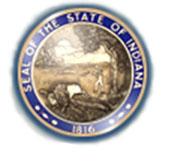South Bend, IN – Judge Theresa Springmann of the Northern District of Indiana has denied a motion to strike the report of an expert who conducted an internet survey regarding the likelihood of confusion created by a trademark infringement defendant.
In January 2009, trademark attorneys for Dwyer Instruments of Michigan City, Indiana![]() had filed a trademark infringement lawsuit in the Northern District of Indiana alleging that Sensocon, Inc. and Tony E. Kohl of Highland City, Florida infringed Dwyer’s federally registered trademarks that are placed on Dwyer’s pressure gauge lens covers by placing confusingly similar marks on Sensocon’s own products. The complaint also made claims of trade dress infringement, unfair competition, false designation of origin, counterfeiting, false designation of origin and copyright infringement.
had filed a trademark infringement lawsuit in the Northern District of Indiana alleging that Sensocon, Inc. and Tony E. Kohl of Highland City, Florida infringed Dwyer’s federally registered trademarks that are placed on Dwyer’s pressure gauge lens covers by placing confusingly similar marks on Sensocon’s own products. The complaint also made claims of trade dress infringement, unfair competition, false designation of origin, counterfeiting, false designation of origin and copyright infringement.
The parties filed cross-motions for summary judgment, and Sensocon filed a motion to strike the report of Dwyer’s expert who had performed a survey on the likelihood of confusing that is created by the alleged trademark infringement. The Court denied the motion to strike, applying the standards for admission of expert evidence under Federal Rule 702 and Daubert v. Merrell Dow Pharmaceutical, Inc., 509 U.S. 579 (1993) and its progeny. The Court noted that similar surveys are routinely admitted into evidence in trademark infringement cases. The court quoted a Seventh Circuit case, stating “[w]hile there will be occasions when the proffered survey is so flawed as to be completely unhelpful to the trier of fact and therefore inadmissible, . . . such situations will be rare.” AHP Subsidiary Holding Co. v. Stuart Hale Co., 1 F.3d 611, 618 (7th Cir. 1993).
Practice Tip: The Court noted that Sensocon could still attack the expert’s report by calling its methods into question and asking the court to grant little weight to the report. The court also granted Sensocon permission to file a report of its own expert to rebut Dwyer’s expert.










